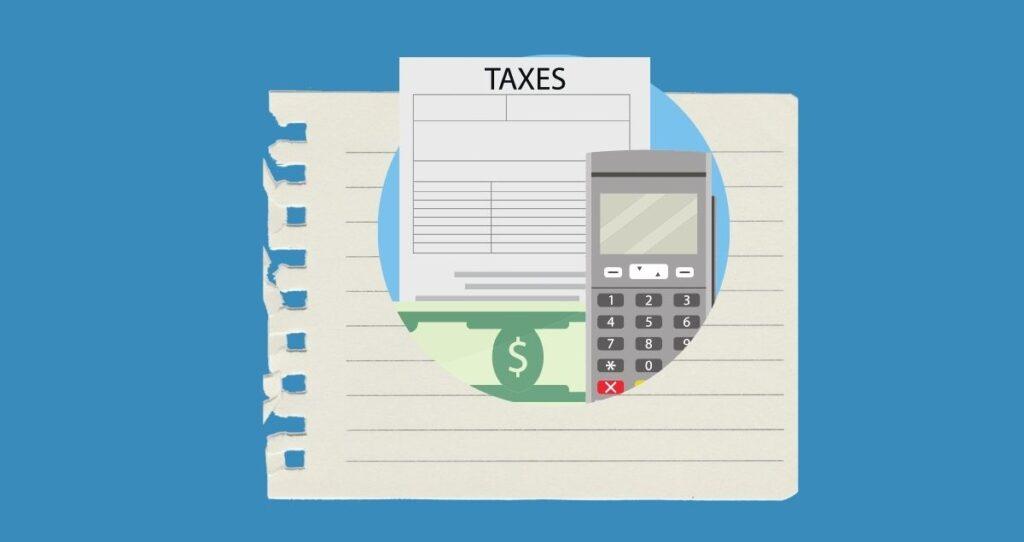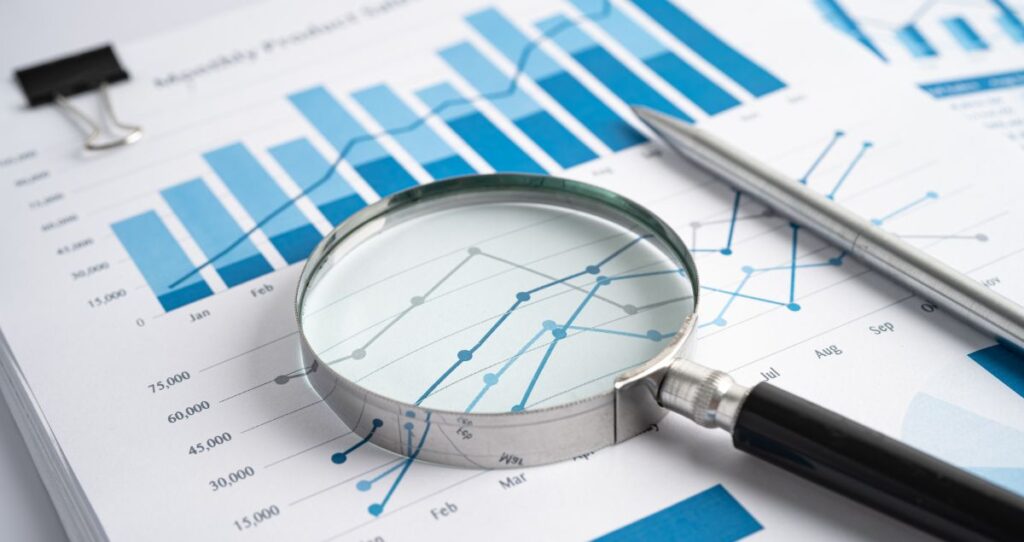While a recession seems overwhelming to many investors, it comes with an opportunity to buy cheap investments and make money. Yes, there are real ways to invest during a recession and make a profit if you know where to look.
When a recession hits, some sectors and investments suffer more than others. For example, highly leveraged companies, speculative investments such as penny stocks, cryptocurrencies, meme stocks, and consumer discretionary companies and their stocks suffer the most. So, it is best to stay away from these ones. There are also other sectors and investments that stay stable and do well during a recession. For example, consumer staples and utilities tend to maintain their values and very often get a boost in sales due to the high demand for these products and services.
If you are looking for a place to invest during a recession and make money, look for investments that maintain their values without experiencing high volatility. For example, it would make sense to buy a stock fund than individual stocks during a recession if you cannot stomach high volatility. If you want a guarantee of your return and the safety of your principal, put your money in high-yield savings accounts and certificates of deposit(CDs). It will all depend on your investment goals and risk tolerance.
Here are 7 places to invest during a recession to make money.
1. Real estate
Real estate is one of the best investment sectors to invest in during a recession. While the housing market may take a hit during economic downturns, there are still opportunities to make money in this industry. If you have the means to purchase a property at a discounted price, you can potentially flip it for a profit once the market bounces back. A person who purchased a house during the 2008 housing market crash, for example, is now enjoying more than 100% return on investment from just buying and holding.
Additionally, you might qualify for lower mortgage rates when you are financing the purchase with a loan. For example, during the Covid-19 pandemic, rates were so low that it was like borrowing money for free. Lower rates give you an edge since they help you lower the cost of your investment.
What makes real estate a good place to invest in during a recession is that you don’t have to own physical property. You can easily avoid dealing with tenants by putting your money in real estate investment trusts (REITs). These are companies that own and operate income-generating real estate, such as apartment buildings, shopping centers, and office buildings. By investing in a REIT, you can earn dividends and potentially see capital appreciation as the underlying real estate assets increase in value.
You might also like: 4 ways to make money with a rental property
2. Precious metals
Precious metals are another potential investment opportunity during a recession. Most sought-out precious metals such as gold and silver have historically been seen as safe-haven assets. In times of economic uncertainty, investors may flock to these metals as a way to hedge against inflation and market volatility. While the value of these metals may fluctuate, they are generally seen as a reliable store of value over the long term which makes them a good place to invest your money during a recession.
Investing in precious metals can be done in a few different ways. One option is to purchase physical gold or silver, such as coins or bars. This can be done through a dealer or broker. However, it’s important to be aware of any fees or commissions that may be involved. Another option that is more convenient is to invest in exchange-traded funds (ETFs) that track the price of gold or silver.
3. Consumer staples
Another potential investment opportunity during a recession is consumer staples. These are the items that people need to buy regardless of their financial situation, such as food, household cleaning products, and personal hygiene items. These companies tend to be less affected by economic downturns because people will always need these essential goods. Additionally, many consumer staples companies are large, well-established businesses with strong brand recognition, making them more stable than some other companies.
Investing in consumer staples can also offer diversification benefits. These stocks tend to have low volatility, meaning that they don’t rise or fall dramatically in price. This can be a good way to balance out riskier investments in a portfolio. Many consumer staples companies also pay dividends, providing investors with a steady income stream.
4. Utilities
Similar to consumer staples, utilities are another great investment to consider during a recession. These companies provide essential services such as food, electricity, gas, and water, which people will always need regardless of the state of the economy.
When the economy takes a dip, people cut back on their spending on luxury goods, but they still need to heat their homes, turn on the lights, and enjoy clean water. Furthermore, many utility companies are regulated by the government, which creates a more secure environment for their stocks. This level of security makes utility companies and the sector, in general, a safe place to invest money during a recession.
Investing in utility stocks can be a safe choice, given their stable earnings and reliable dividend payouts. They are often seen as a conservative investment for investors looking for a safe haven during tough economic times. However, it is important to do your own research and assess company-specific factors such as the level of debt, regulatory environment, and future growth.
You might also like: 16 ways to save money on utility bills
5. Dividend-paying stocks
Dividend-paying stocks are great investments to make money during a recession. These stocks can provide a steady stream of income through their reliable dividend payouts.
While dividend-paying stocks are great investments during the recession, not all dividend stocks are created equal. It’s essential to research the individual company’s financial status, such as debt levels and growth prospects. Some companies cancel dividend payouts during tough economic times or go bankrupt in the worst-case scenario. So, your research will help determine whether the potential dividend payout is sustainable over time and if the company is well-established to weather the storm.
A good way to invest in dividend stocks and make money during a recession is to diversify your investment portfolio with a mix of dividend-paying stocks from various industries. This can help reduce risk, as no single industry is immune to the effects of a recession.
Related: How to buy dividend stocks: Dividend investing guide
6. High-yield deposit accounts
Recessions can be intimidating causing many people to lose their money by liquidating their investments. What if there is an investment that guarantees a return on investment and protects your principal amount? High-yield savings accounts and certificates of deposit(CDs) can just do that.
What makes high-yield deposit accounts great investments during recessions is that they protect your deposit up to the FDIC limit which is $250,000 per account and per depositor. Even if the bank goes bankrupt, you will get your money back up to the FDIC limit. Additionally, some of these accounts come with fixed interest rates(for CDs) while others offer variable rates(for savings accounts). Meaning that you can easily make money during a recession through interest payouts while your funds are also protected.
Should you find a profitable investment in a sector that was hit the most during a recession, some deposit accounts allow you access to your funds. For example, savings accounts and no-penalty CDs/liquid CDs allow you to make withdrawals which you can use cheap investments without paying a penalty. You can also build a CD ladder that allows you to have access to your funds early.
More details on high-yield savings accounts
- High-yield savings accounts. These are deposit accounts usually offered by online banks and credit unions. Since these institutions do not have physical infrastructure, they tend to offer higher rates than traditional banks. What makes savings accounts great investments to make money during a recession is that you can make withdrawals, transfers, and deposits. This makes them liquid enough for other financial needs.
- Certificate of deposits(CDs). If you want to maximize your return on investments but also ensure the safety of your money during a recession, CDs are great options to look into. CDs are term deposit-meaning that after opening your CD account, your money gets locked away until maturity. In exchange for the wait, you get to enjoy a much higher interest rate than savings accounts. Check out these 11 different types of CDs and how they can help you make money during a recession.
Related: How to open a CD account: A Step-by-step guide
7. Stock Funds: Index Funds, Mutual Funds, and ETFs
Unlike individual stocks that are prone to high volatility during a recession, stock funds do not experience the same level of volatility. Let’s explore stock funds in more detail and see why they are some of the best investments to consider during a recession.
Index funds
This is because index funds mimic the market performance and composition of a particular market index. When you buy an index fund, you are not buying an individual stock. Instead, you are buying all stocks in that fund-meaning if one or two companies close their doors, your portfolio will still be in good shape.
When you invest in index funds during a recession, your portfolio experience less volatility, and risks are much lower compared to owning individual stocks. Index funds tend to follow their benchmark index. For example, according to Money.com, the following are the best 3 S&P 500 index funds in 2023: Fidelity 500 Index Fund (FXAIX), Vanguard 500 Index Fund Admiral Shares (VFIAX), and Schwab S&P 500 Index Fund (SWPPX).
Mutual funds and Exchange Traded Funds(ETFs)
Mutual funds also offer the same level of securities as index funds due to providing instant diversification. Meaning, if one asset in the fund loses its value, it will not cause a major impact on the fund structure or its value. This is what makes mutual funds a great way to invest during a recession.
A mutual fund is a fund that pools money from investors to purchase securities such as bonds, stocks, equities, money market instruments, etc. When you buy a mutual fund, you are buying all assets in that fund which offers an extra layer of safety against financial risk and volatility while earning you interest or dividend payouts.
Exchange-traded funds(ETFs) also pool money from investors to purchase securities such as stocks and bonds. What differentiates an ETF from a mutual fund is that you can purchase an ETF on an exchange the same way you do for stocks. ETFs can track a particular sector, a commodity, or a collection of securities.
What is the most profitable during a recession?
Industries that have historically shown resilience during a recession include healthcare, consumer staples, and utilities. These industries tend to provide products and services that are essential regardless of the state of the economy. Investing in commodities such as gold and silver can also be a profitable strategy during a recession as these tend to be safe-haven assets that retain their value during times of economic uncertainty.
You should also look into real estate investment options. While it may seem counterintuitive to invest in real estate during a recession, it can actually be a smart move. Prices of properties may be lower, and there may be a greater selection of properties to choose from. Additionally, the demand for rental properties tends to increase during a recession as people lose the financial capacities to invest in a home of their own.
What sells the most during a recession?
As we discussed in the previous section, investing in low-risk options like fixed-income securities can be a smart move during a recession. However, it’s not just your investments that need to be positioned for success during challenging economic times. If you’re looking to make money during a recession, it can be helpful to understand what products and services tend to sell the most.
During an economic downturn, consumers tend to prioritize their spending on necessary items like food, healthcare, and personal hygiene products. As a result, companies that sell these types of goods typically see a boost in sales. Discount retailers and grocery stores may also see increased business as consumers look to save money on their purchases.
On the other hand, luxury goods and services tend to take a hit during a recession as people cut back on non-essential spending. This includes high-end fashion, travel, and entertainment. Companies that rely on discretionary spending may need to adjust their product offerings or marketing strategies to stay afloat during a recession.
What gets hit the hardest in a recession?
During a recession, certain industries tend to suffer more than others. For example, luxury goods and services are often the first to take a hit as people cut back on non-essential spending. High-end fashion, travel, and entertainment companies are among those that may struggle during a recession. However, companies that provide necessary goods or services tend to fare better. This includes sectors such as healthcare, utilities, and food.
What items get cheaper during a recession?
During a recession, it’s not just about investing in the right companies but also in the right products. Certain items tend to get cheaper during economic downturns, and understanding these trends can help you make informed investment decisions.
One commodity that typically decreases in price during a recession is oil. As demand for oil decreases, so does the price.
Another sector that may decrease in prices during a recession is real estate. As people struggle to make mortgage payments and face foreclosure, the demand for housing shifts from the seller’s market to the buyer’s market as we have seen in the 2008 market crash. This shift in turn, causes a sharp decline in the housing market and the real estate sector in general. Lower estate prices serve as an opportunity for savvy investors as low prices ensure long-term appreciation and sizable capital gains.
Consumer goods such as electronics and automobiles may also see a decrease in price during a recession. As people cut back on spending, companies may offer discounts and promotions to entice consumers.
What are risky investments to avoid during a recession?
While there are highly profitable investments to make money in a recession, there are also certain investments to avoid during a recession due to their underlying risks.
Here are investments to avoid during a recession.
1. Consumer discretionary companies
Stocks for consumer discretionary compies tend to do poorly during a recession. This is because people tend to save their money during a recession and only purchase what they need such as food, medication, cleaning products, electricity, and water.
2. Speculative investments
When it comes to picking investments during a recession, you must be extremely careful about your picks. Some investments you should avoid at all costs during a recession are speculative investments.
According to SoFi, speculative investments are those that are often non-profitable but investors hope to make a lot of profit from them due to rapid changes in their stock prices or the assets themselves. These investments are very profitable during good economic times but their values decrease sharply and can even go to zero during a recession. A good example of highly speculative investments to avoid during a recession are penny stocks, cryptocurrency, meme stocks, etc.
3. Highly leveraged companies
During a recession, the demand for goods and services declines in many sectors. Low demand means that companies will experience a decline in sales which directly affects their profitability. Highly leveraged companies get hit the most during a recession due to the risk of not paying their debts. So, if a company carries a lot of debt on its balance sheet, that company becomes a risky investment during a recession.
4. Bonds
Interest rates tend to fall during a recession which pushes bond prices higher and lowers bond yields. Additionally, since bonds are loans you extend to companies and the government, the chances of defaulting on those bonds might increase during a recession which put your investment at a high risk. If you must buy bonds, invest in government bonds and bonds from stable and well-established companies during a recession.
5. Peer-to-peer lending
During a recession, most people lose their jobs which increases loan default rates. For this reason, peer-to-peer lending is not a good investment option during a recession.
The bottom line
While recessions may seem like a financial nightmare, they present opportunities for those who know where to invest. By focusing on real estate, precious metals, consumer staples, utilities, stock funds, and dividend-paying stocks, you can position yourself for long-term success. However, it is crucial to conduct thorough research, consult with a financial advisor and take calculated risks when investing during a recession. Due to high investment risks during a recession, you should avoid highly leveraged companies, speculative investments, consumer discretionary companies, peer-to-peer lending, and bonds.
More financial tips
How to prepare for a recession: 13 tips to survive a recession
Manage your money better in 11 simple steps








